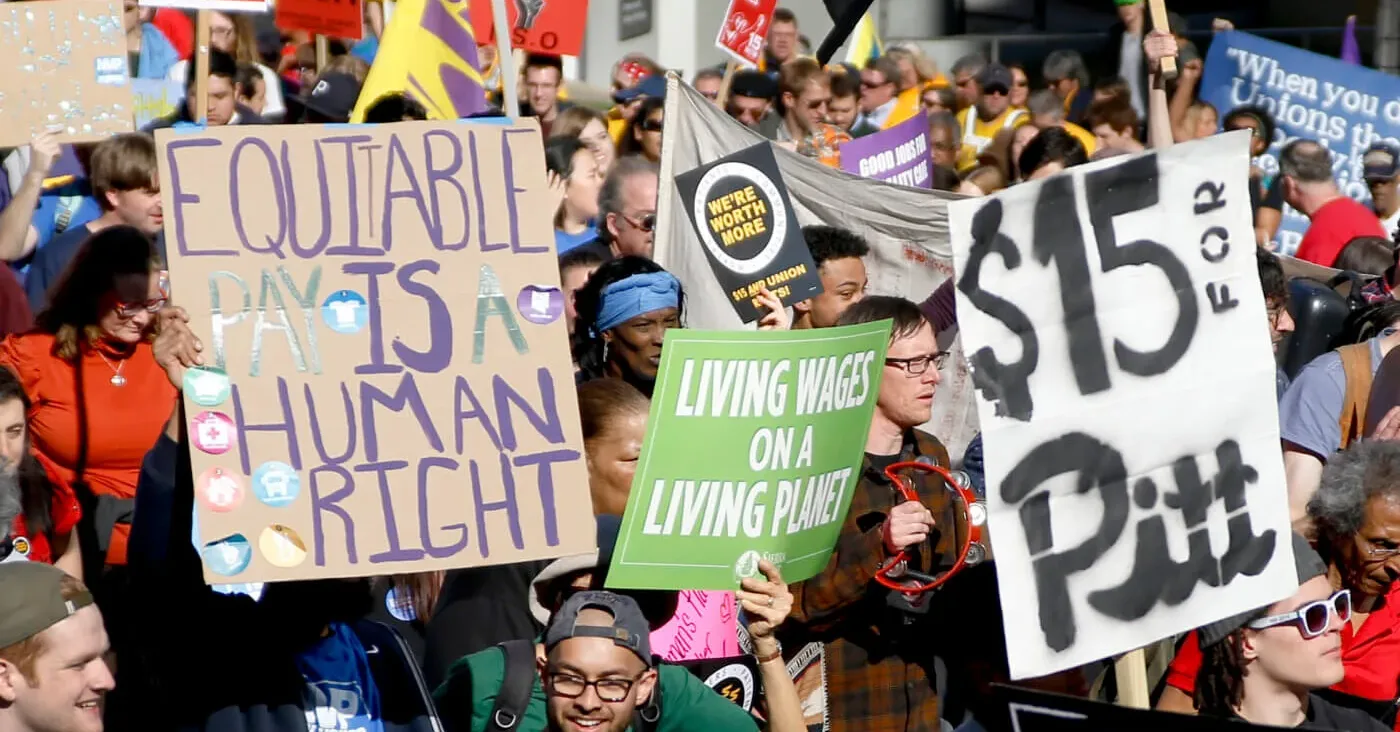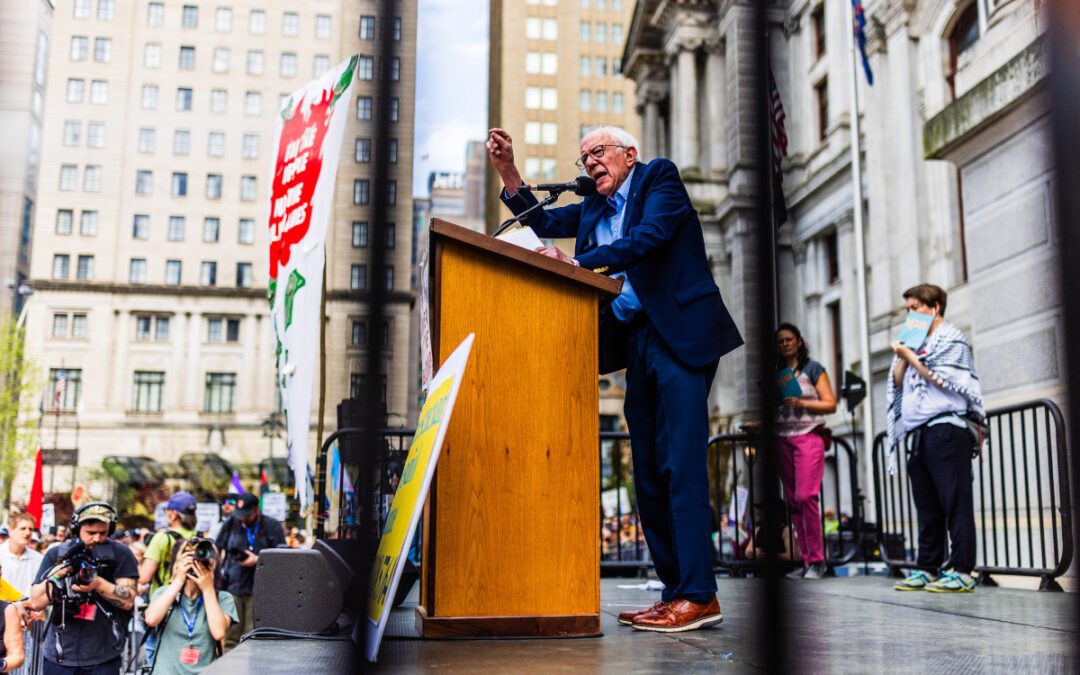
FILE - In this April 14, 2016, file photo, union organizers, students, and supporters for a $15 an hour wage march through the Oakland section Pittsburgh. Modest income growth for most Americans, strikes by fast-food workers, and the rapid growth of low-paying jobs at the same time middle-income work shrinks have combined to make the minimum wage a top economic issue for the 2016 campaign. (AP Photo/Keith Srakocic, File)
Pennsylvania Senate Republicans have held up a minimum wage increase for more than six months, and due to this inaction, Pennsylvania won’t be one of the 25 states to raise their minimum wage on New Year’s Day.
The minimum wage is increasing in 25 states on Jan. 1, 2024, but Pennsylvania isn’t included on that list due to inaction by the Republican-controlled Pennsylvania Senate.
Instead, Pennsylvania residents will start 2024 earning $7.25 per hour, the lowest minimum wage out of the commonwealth’s six neighboring states and tied for the lowest rate in the nation. New York, Jersey and Maryland will have minimum wages that are two times higher than Pennsylvania’s minimum wage.
Pennsylvania House Democrats voted in June to increase Pennsylvania’s minimum wage to $15 per hour by the start of 2026, but the bill has been sitting dormant for more than six months. Residents in the commonwealth haven’t benefited from a minimum wage increase since 2009 when it was raised to the current federal minimum wage.
House Bill 1500, which was introduced by State Rep. Jason Dawkins, Chair of the House Labor and Industry Committee, would increase Pennsylvania’s minimum wage on a graduated scale.
The minimum wage would have increased to $11 per hour on Jan. 1, 2024, $13 per hour on Jan. 1, 2025, and to $15 on Jan. 1, 2026. The bill would also set the tipped minimum wage to 60% of the minimum wage. The minimum wage would then be indexed to inflation starting in 2027.
A 2022 poll by the Keystone Research Center, a progressive leaning think tank, found that 73% Pennsylvanians support raising the minimum wage to $15 per hour over a year period and then indexing it to inflation, which is similar to the legislation passed by House Democrats.
The organization found that 1.3 million Pennsylvanians would benefit from a $15 minimum wage by 2026 and the vast majority are adults (89%) and women (60%).
Due to Republicans’ inaction, Pennsylvania residents living near the border are more likely to seek higher paying jobs across state lines than take lower pay jobs in the commonwealth.
“Pennsylvania workers are crossing the border to get a living-wage job; meanwhile, fewer New York workers are likely coming to Pennsylvania to take a poverty-wage job,” Steven Herzenberg, the executive director of the Keystone Research Center, said in a statement earlier this year.
“Pennsylvania low-wage employers, meanwhile, can’t find workers or fill vacancies because workers are crossing the border or staying home.”
Support Our Cause
Thank you for taking the time to read our work. Before you go, we hope you'll consider supporting our values-driven journalism, which has always strived to make clear what's really at stake for Pennsylvanians and our future.
Since day one, our goal here at The Keystone has always been to empower people across the commonwealth with fact-based news and information. We believe that when people are armed with knowledge about what's happening in their local, state, and federal governments—including who is working on their behalf and who is actively trying to block efforts aimed at improving the daily lives of Pennsylvania families—they will be inspired to become civically engaged.


Thousands of Philly area union members rally with Bernie Sanders on May Day
Thousands of Philadelphia workers and union members gathered outside of City Hall on Thursday with US Sen. Bernie Sanders to celebrate May Day, an...

Gov. Shapiro says he wants to recruit laid-off federal workers to fill state job openings
Pennsylvania's governor signed an executive order Wednesday hoping to attract those workers, noting that the state, with a workforce of almost...

Opinion: Unprecedented solidarity needed now in Philadelphia
In this op-ed, Philadelphia AFL-CIO President Daniel Bauder urges "unprecedented solidarity" to defend workers' rights and ensure justice during a...

Amazon’s Whole Foods asks agency to set aside the results of a union win at a Philadelphia store
Amazon-owned Whole Foods is asking the National Labor Relations Board to set aside the results of a union election in which the first group of the...

Shapiro calls on US Steel to protect Pa. workers after Biden blocks merger with Nippon Steel
President Joe Biden blocked the merger between US Steel and Nippon Steel, citing national security concerns. Gov. Josh Shapiro is calling on US...





